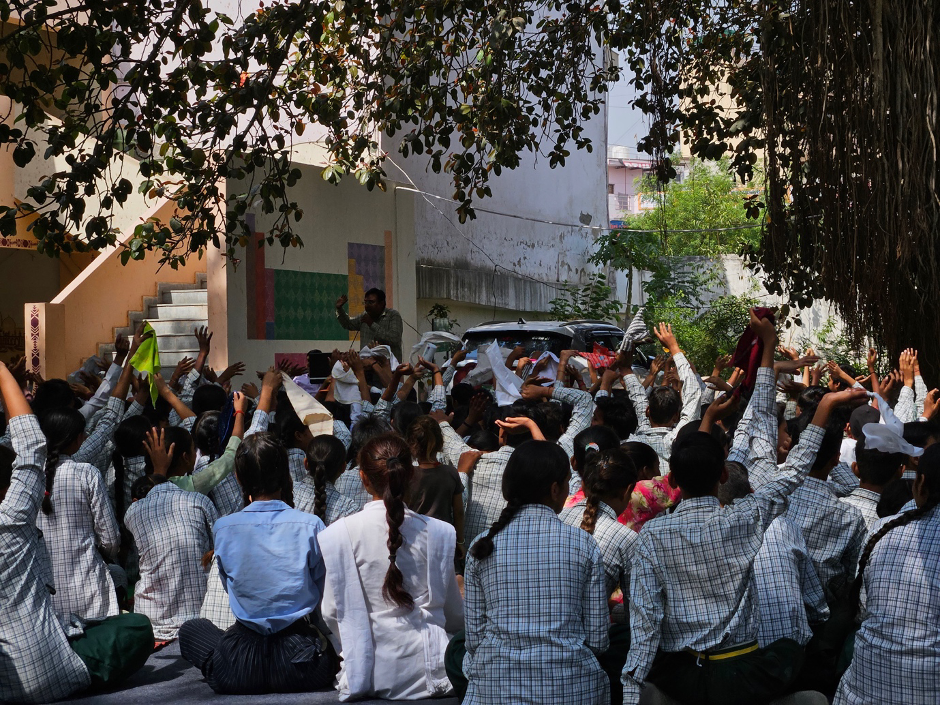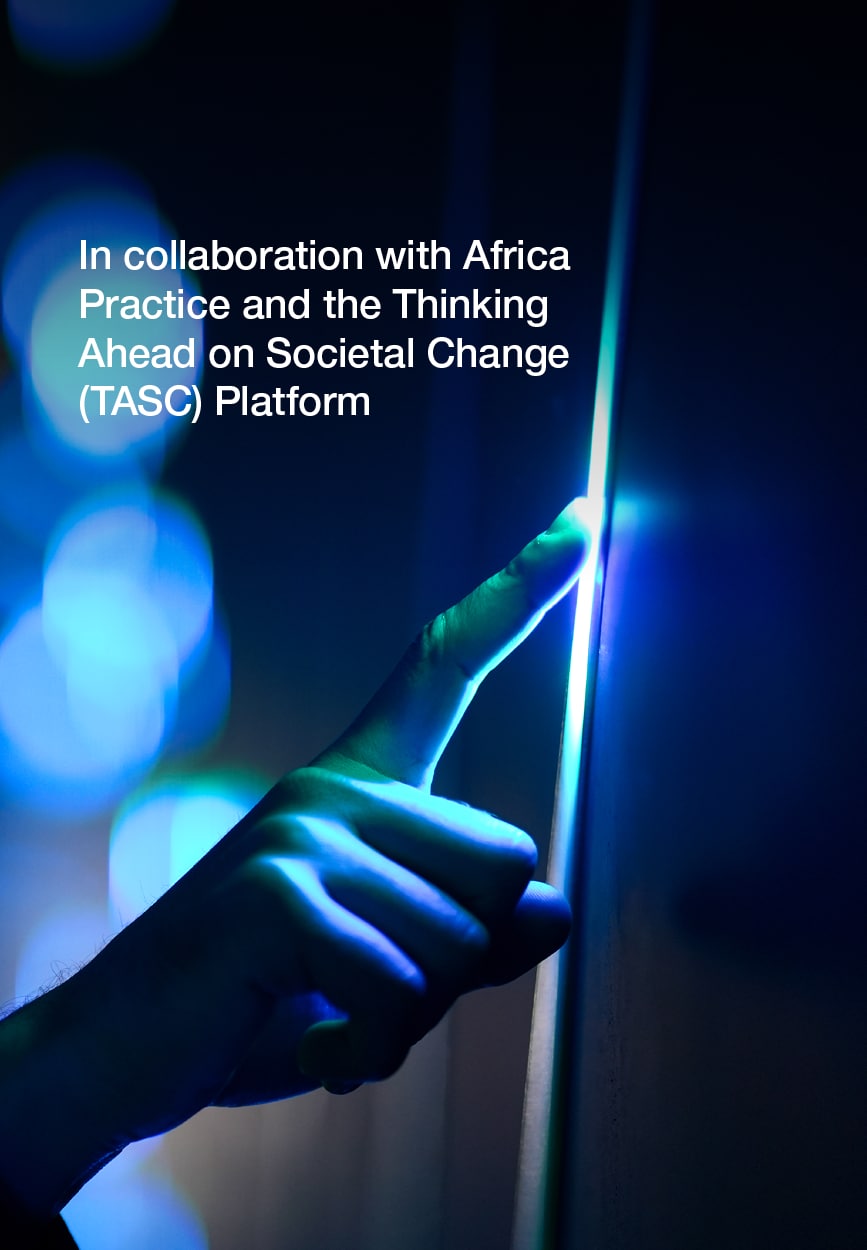3 ways to improve teaching in Sierra Leone, according to a new report

Image: Unsplash/ Annie Spratt
Stay up to date:
Education, Gender and Work
- All children deserve great teachers and quality education shouldn't be a matter of privilege, upbringing or economic status.
- The Sierra Leonean government formally inaugurated the Teaching Service Commission in August 2016, to help teachers.
- A recent report on the TCS looks at the lifecycle of the teaching profession and how to better align it with Sierra Leone’s needs.
Teaching is one of the most influential professions. Teachers are often role models, mentors, friends, and are tasked with imparting basic cognitive skills (such as numeracy and literacy), instilling socioemotional skills (such as teamwork, communication, and persistence), and encouraging a passion for lifelong learning. It is not surprise that the paramount role and influence of teachers on learning is vastly documented by rigorous evidence: teachers are the single most important school-based determinant of student learning.
We were lucky to have great teachers that inspired us. However, it shouldn’t be a matter of luck or privilege. All children deserve great teachers. And this can be a reality if teachers are provided proper education and training. Recognizing the importance of effective teachers, the Sierra Leonean government formally inaugurated the Teaching Service Commission (TSC) in August 2016 “to manage the affairs of teachers to improve their professional status and economic wellbeing and for other related matters.”
What can the TSC do to ensure that Sierra Leonean teachers are great? A recently published WB report on Teachers and Teaching in Sierra Leone centers precisely on this matter. Looking at the life cycle of teaching profession, the report provides recommendations on how to better align the teacher profession with Sierra Leone’s needs. The study covers two key stages in the teaching career:
Stage 1 - the experience of prospective teachers before they join the career: the teacher application process, pre-service training, teaching service registration, licensing, and hiring; and
Stage 2 - the experience of current teachers while teaching: deployment, initial training, and professional development of teachers.
Given the expected expansion of the education system in Sierra Leone with the implementation of the national flagship Free Quality School Education Program, the report also includes a projection of the number of teachers that will need to be hired soon.
Here is a sneak peek into some of the report’s key recommendations:
1. Teacher Training Colleges must be strengthened to ensure that those trained to be teachers have solid foundations. The passing score to earn a teaching certificate in Sierra Leone is 25 percent (i.e., future teachers are only expected to know one-fourth of the content on which they are tested to graduate as teachers). This is equivalent to what one would obtain by sheer luck by guessing all questions in a multiple-choice exam with four random options. You would not want your child in front of someone who masters one fourth of the content knowledge, would you? The country needs higher minimum standards to attain a teaching certificate.
2. Since children are already in the classroom (and we cannot afford to lose a generation of students while we train better teachers), we need to help existing teachers teach to their full potential. More than one third (36 percent) of all teachers in the country did not go through the official pre-service training process. These teachers are standing in front of students every day and need to be empowered to teach to the best of their abilities. The World Bank is working with the TSC to design a continuous professional development model that is tailored, practical, focused, and ongoing in line with what evidence shows works. This technology-based intervention will focus on core subjects and provide teacher training based on observed behaviors of teachers in their classrooms. Through the model, easy-to-understand task- and problem-oriented modules will be made available to all teachers in a standard and low-cost format.
3. Better teacher management is necessary to ensure that all the pieces of the system work. For instance, inefficient teacher allocation processes over decades have resulted in important inequities in pupil-to-teacher ratio (e.g., while there are on average 26 students per teacher in Western Area Urban, there are an average of 36 students per teacher in Karene). The World Bank is working with the TSC to improve teacher allocation through the adoption of a systematic teacher deployment protocol that assigns teachers to the schools with the greatest needs and that prioritizes females (given that more than 70 percent of teachers are male). To incentivize teachers to serve in the most disadvantaged areas, implementation of rural or hardship allowance is also being considered.
The prevalence of ghost teachers and general teacher absenteeism are also big problems. In unannounced school visits, 20 percent of teachers were absent. With the support from UK’s Foreign, Commonwealth, and Development Office (FCDO), the TSC is conducting a payroll cleansing exercise. Going forward, the TSC will implement a tablet-based teacher monitoring system that will use fingerprint scanners to verify teacher attendance. Teacher absenteeism is expected to be further reduced by scaling up performance-based financing program supported by the Free Education Project financed by the World Bank, FCDO, the European Union, and Irish Aid. The program incentivizes both teachers and students to attend school by tying grants to observed behavior.
Every child deserves a great teacher. And great teaching cannot wait. Let’s support the government of Sierra Leone to continue making great strides.
Accept our marketing cookies to access this content.
These cookies are currently disabled in your browser.
Don't miss any update on this topic
Create a free account and access your personalized content collection with our latest publications and analyses.
License and Republishing
World Economic Forum articles may be republished in accordance with the Creative Commons Attribution-NonCommercial-NoDerivatives 4.0 International Public License, and in accordance with our Terms of Use.
The views expressed in this article are those of the author alone and not the World Economic Forum.
Related topics:
Forum Stories newsletter
Bringing you weekly curated insights and analysis on the global issues that matter.
More on Education and SkillsSee all
Mark Esposito and Ava Fitoussy
September 22, 2025
Naoko Tochibayashi
September 17, 2025
Shankar Keshav Prasad
September 15, 2025
Emilian Axinia
September 11, 2025
Alexander Shevchenko
September 4, 2025







